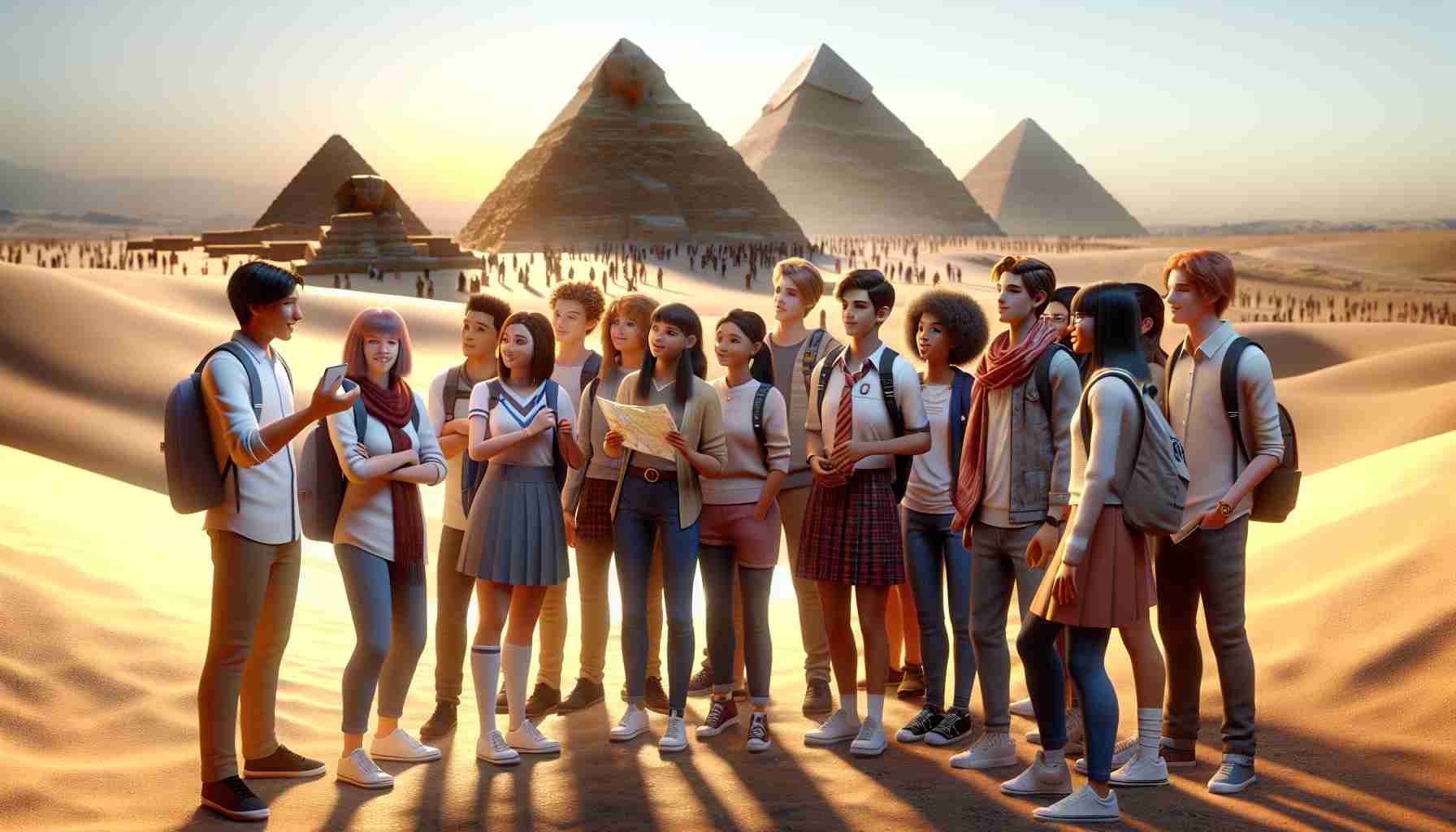In an exciting educational experience, eighth-grade students from Wilson High School embarked on a fascinating trip to Egypt this past week. The journey was designed to immerse students in the rich history and cultural heritage of one of the world’s oldest civilizations.
This field trip provided a hands-on opportunity for the students to explore significant landmarks and learn about ancient Egyptian society. Students engaged in various activities that highlighted the mysteries of the pyramids and the significance of the Nile River. They examined artifacts and discussed the daily lives of the Egyptians, bridging the gap between textbook knowledge and real-world experiences.
The trip also included interactive sessions with historians who shared insights and stories about the region’s past, making the experience both educational and memorable. Students expressed enthusiasm as they realized the impact of archaeology and history on understanding modern civilization.
Through this initiative, the Wilson High School educators aimed to inspire a passion for history and encourage students to appreciate different cultures. In doing so, they hoped to cultivate a sense of curiosity and excitement that would extend beyond the classroom.
Overall, the field trip to Egypt was a remarkable success, enriching the students’ learning experience and providing them with lasting memories linked to their studies.
In addition to the information presented in the article, several relevant facts and concepts can enhance the understanding of the Wilson High School students’ field trip to Egypt.
Egypt’s Historical Significance: Egypt is home to some of the world’s most famous archaeological monuments, including the Great Pyramids of Giza and the Sphinx. Over the millennia, it has attracted historians and archaeologists who continue to make discoveries that deepen our understanding of human civilization.
Educational Benefits of Field Trips: Research shows that field trips can significantly enhance learning outcomes by engaging students in experiential learning, promoting critical thinking, and fostering a stronger connection to the academic curriculum. Such trips can inspire students to pursue further studies in history, archaeology, or cultural studies.
Environmental Considerations: Traveling to a country like Egypt also raises awareness about sustainability and the environmental impact of tourism. Schools that organize trips must consider how to minimize their carbon footprint and encourage responsible tourism practices among students.
Key Challenges and Controversies: There are potential challenges and controversies associated with organizing international school trips. These may include safety concerns, travel restrictions due to political instability, cultural sensitivities, and the ethical implications of engaging with archaeological sites, such as the preservation of artifacts and respect for local customs.
Advantages:
1. Enhanced learning experiences and retention of knowledge through hands-on activities.
2. Exposure to diverse cultures and histories, fostering global citizenship.
3. Opportunity for personal growth and development through travel and shared experiences with peers.
Disadvantages:
1. Potential high costs associated with international travel, which may not be accessible to all families.
2. Difficulties in coordinating travel logistics, including accommodations and itinerary planning.
3. The possibility of cultural misunderstandings or disrespect towards local customs and traditions by students.
Questions and Answers:
– What are the learning objectives of such field trips?
The main objectives are to provide students with firsthand exposure to historical sites, enhance their understanding of ancient cultures, and develop critical thinking skills through interactive experiences.
– How do educators assess the effectiveness of such trips?
Educators may use pre-trip and post-trip assessments, student reflections, and feedback to evaluate how the trip influenced students’ knowledge and interest in the subject matter.
Suggested Links:
– History Channel
– Archaeological Institute of America



















